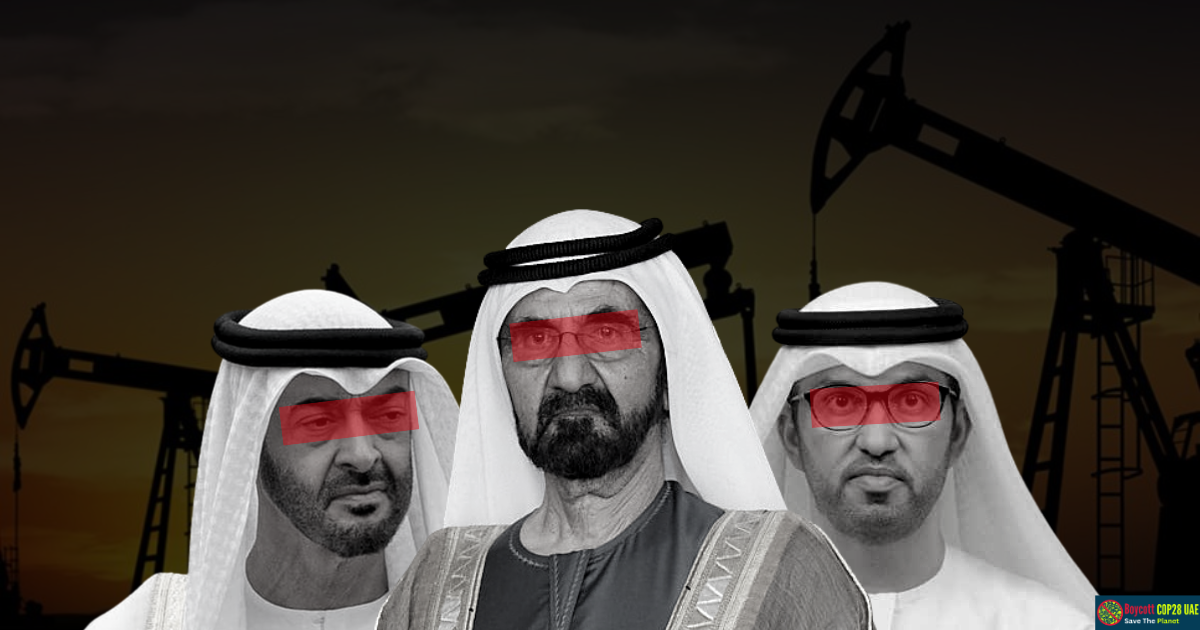The upcoming 28th Conference of the Parties (COP28) to the United Nations Framework Convention on Climate Change (UNFCCC) has been hailed as a critical global effort to combat climate change. However, a closer examination reveals a concerning pattern that suggests the involvement of oil bosses and their agenda for fossil fuel hegemony rather than genuine climate action. This research-cum-analysis piece aims to shed light on this hidden agenda by analyzing key statements and actions of influential figures in the industry and their potential impact on the COP28 negotiations.
The Business Mindset Narrative:
One of the notable figures who repeatedly emphasizes the need for a “business mindset” in tackling climate change is Sultan Al Jaber, a prominent figure in the oil industry. His emphasis on this narrative raises questions about the true intentions behind COP28. He also holds a prominent position as the head of ADNOC, the state oil company responsible for a substantial portion of global hydrocarbon production. Alarmingly, the UAE is actively pursuing plans to expand its fossil fuel production, which contradicts the urgent need to reduce greenhouse gas emissions. Is it truly about climate action or is it an opportunity for oil bosses to maintain their influence and profit from fossil fuel production?
In a speech delivered at a high-level climate summit, Al Jaber stated, “The world needs a business mindset to tackle climate change.” This statement, while seemingly innocuous, could be interpreted as a veiled attempt to prioritize profit-making and economic interests over meaningful climate action. By framing climate change as a business opportunity, oil bosses could be seeking to protect their investments and secure their fossil fuel hegemony. COP28, under the Presidentship of Sultan Al Jaber, reveals a notable shortcoming in terms of addressing the urgent climate crisis with adequate ambition. While Sultan presented renewable energy technology and projects, they appeared to be primarily symbolic gestures rather than substantial green initiatives, particularly when compared to the efforts undertaken by his own organization, Masdar.
The Illusion of Carbon Capture and Storage (CCS) Technology:
Another aspect that raises suspicion about the true intentions of COP28 is the recurring emphasis on Carbon Capture and Storage (CCS) technology as a solution to climate change. While CCS technology has its merits, it can also be exploited by the fossil fuel industry as a means to justify continued oil extraction.
Oil bosses and their lobbyists consistently highlight CCS technology as a way to reduce carbon emissions and combat climate change. However, it is crucial to critically examine this narrative. Is the promotion of CCS technology a genuine effort to address the root causes of climate change, or is it a tactic employed to prolong the life of the fossil fuel industry and maintain their control over energy markets?
The Influence of Oil Lobbying on UNFCCC:
The influence of the oil lobby within the UNFCCC cannot be ignored. Powerful oil-producing nations and industry stakeholders have the means to shape policy discussions and influence the outcome of global climate negotiations. This influence enables them to protect their interests and ensure favorable conditions for the continued extraction and consumption of fossil fuels.
Allegations have emerged suggesting that influential fossil fuel corporations have wielded undue influence over the decision-making processes within COP28. This influence raises valid concerns about the fairness and impartiality of the negotiations, as the priorities of these industries may not align with the urgent need for climate action. In the absence of robust safeguards to prevent industry interference, numerous lobbyists converge on the annual climate talks, often participating as part of country delegations. A notable example can be seen in the delegation from the UAE, which included a significant contingent of 1000 individuals, featuring a disproportionately high number of lobbyists representing fossil fuel interests compared to other nations. This recurring pattern of political intervention and co-opting of the UNFCCC undermines the credibility of the forum and compromises its essential mission.
Over time, corporate influence, particularly from fossil fuel interests, has increasingly permeated the UNFCCC, simultaneously limiting civil society access. Consequently, the power dynamics within COP have shifted towards multi-stakeholder platforms that are heavily influenced by corporations, which in turn undermines the rights and sovereignty of the intended beneficiaries. Furthermore, concerns have been raised regarding the potential conflicts of interest surrounding Sultan Al Jaber himself. His prior connections to the fossil fuel industry cast doubt on his capacity to lead in an impartial manner and prioritize the transition to renewable energy sources. These conflicts further diminish the credibility of COP28 and erode trust in its ability to achieve meaningful outcomes.
The evidence presented in this research-cum-analysis piece strongly suggests that COP28 may serve as a platform for oil bosses and fossil fuel interests to maintain their hegemony rather than genuinely address the urgent climate crisis. The focus on a “business mindset” and the promotion of CCS technology raise doubts about the sincerity of climate action efforts. It is crucial for the international community to remain vigilant and challenge any attempts to prioritize profit over the well-being of our planet and future generations.






